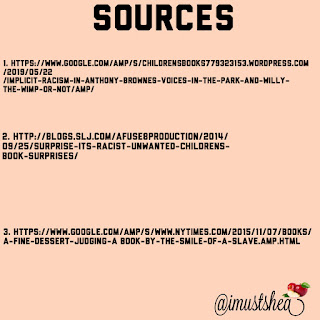As a Black woman, I have never had the pleasure, of NOT experiencing racism. For years I overlooked many of these racist "moments" because these "moments" didn't consist of racial slurs, or any of the more extreme ways in which people show that they are racist. What I experienced is what they call 'covert racism', racism that is surreptitious. The majority of my childhood was spent in the suburbs, and while the type of education that I was exposed to was phenomenal, there was a lot lacking in the social/emotional department. By this I don't mean that teachers didn't talk about feelings , no , I'm talking about the trouble I had making connections with my fellow peers and the damage that came with not having anyone to identify with; not having anyone that looked like me - A dark-skinned Black girl. I grew up in a single parent household where the mother was absent(in childhood) which caused me to rely on my surroundings (again that looked very different than me) , as well as the images shown to me through a variety of media (books, commercials, cartoons, movies, store catalogs, ads, etc.), to develop a sense of self. With a culture whose beauty standards are impossible to meet, things didn't fair well for my self-esteem.
Up until about 5th grade I thoroughly enjoyed reading both in and outside of school. This was more than likely due in large part to my father graduating from The University of Michigan as an English major. I was reading by the age of 3 and the mispronouncing of words just wasn't a thing. I would be corrected on the spot and sometimes even given the spelling of the word I mispronounced (unsolicited). It was in this time, the time where reading didn't feel like a chore, that I was unknowingly soaking up countless messages saturated in racial stereotypes and just flat out racism. It was these messages that helped my impressionable mind begin to develop a sense of self...or lack there of.
In 2012, 3,600 children's books were reviewed by the Cooperative Children's Book Center (CCBC) and only 3% featured African-Americans
https://www.washingtonpost.com/posteverything/wp/2014/12/08/characters-in-childrens-books-are-almost-always-white-and-its-a-big-problem/. It makes sense considering between 2007 and 2017 POC made up only 8.62% of the creators of children's books
https://www.booktrust.org.uk/globalassets/resources/represents/booktrust-represents-diversity-childrens-authors-illustrators-report.pdf. With these numbers being from the 2000's I'm willing to go out on a limb and say that these numbers were significantly lower in the 90's. None of this being beneficial to my self-esteem or the stereotypes I would eventually internalize and am still to this day trying to work through and unlearn (I'm 28).
While there are far more books depicting characters who are POC (in a positive light) today, that doesn't mean that the harmful stereotypes and racial undertones aren't still present. Below I have attached a slideshow based on a curated list of books that are arguably (or so dang obvious that there's nothing to argue) racist, or that promote racial stereotypes. While this post is in no way telling you or encouraging you to throw the books you see in the slideshow out, I do hope this information will push you to think more critically about the books in your classroom, library, home, etc that may be doing more harm to a child than good. The books that are sending negative messages to children about their race and their culture.
"Teaching is an act of resistance" - Education PowerED
Ms. Pashea











Comments
Post a Comment